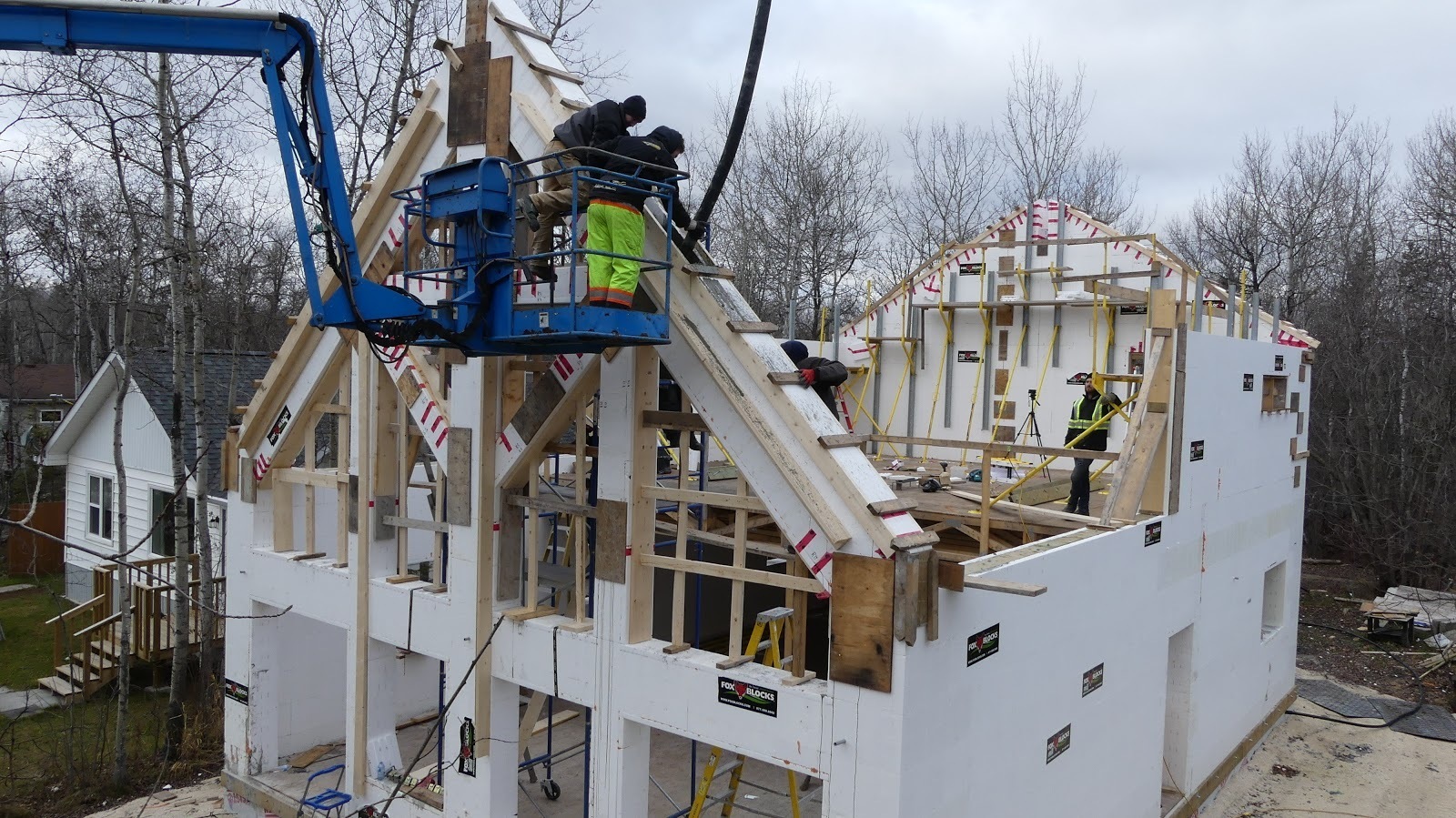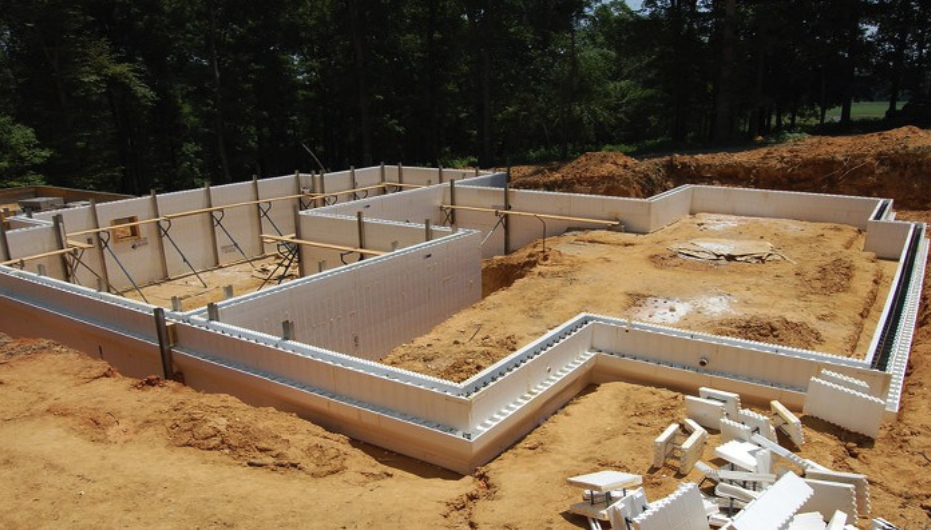
5 Must-Haves for High Performance Building Envelope Systems

A high-performance building envelope system is an important component of sustainable and energy-efficient construction. It helps to create a healthy, safe environment for occupants while reducing the environmental impact and costs associated with traditional construction methods. This article will explore the components of high-performance building envelopes, including insulated concrete forms (ICFs), and discuss their benefits.
What Are High-Performance Building Envelope Systems?
A high-performing building envelope is an essential part of a structure because it helps maintain the temperature, humidity levels, air quality and noise pollution. It also helps to reduce energy consumption for the entire property.
To achieve an optimal level of functionality and sustainability, building envelope systems must be balanced in cost while still being affordable. It should also prioritize efficiency and resilience in its construction to ensure ease of use and little-to-no maintenance over time.
Using Insulated Concrete Forms (ICFs) for Improved Performance

Insulated Concrete Forms (ICFs) are made of expanded polystyrene insulation with plastic cross-ties and they are used to build high-performance walls for all shapes and sizes of walls for residential and commercial buildings.
The ICF blocks can be stacked into almost any design with steel reinforcing bars placed inside them. Concrete is placed in the blocks to create a reinforced concrete wall that provides a double layer of continuous insulation. This is an effective way to reduce thermal bridging throughout the entire wall structure.
5 Must-Haves for High-Performance Building Envelope Systems
There are at least four critical qualities that must be present no matter which components are used, but we’ll discuss five to provide added clarity. Insulated Concrete Forms (ICFs) positively impact these areas in the following manner:
1. Energy Efficiency
Superior Insulation: ICF walls consist of two layers of rigid expanded polystyrene (EPS) foam that sandwiches a reinforced concrete core. The foam insulation provides a continuous barrier against heat transfer, to significantly reduce energy loss through the walls.
Reduced Air Infiltration: ICF walls are airtight, with no gaps or seams for air leakage. This reduces the amount of energy required to heat or cool the building, as conditioned air is less likely to escape and outdoor air less likely to infiltrate.
Thermal Mass: Concrete has a high thermal mass, which means it can store and release heat over time. This helps regulate indoor temperatures and reduces the need for additional heating or cooling.
Reduced HVAC Requirements: Because of their superior insulation and reduced air infiltration, ICF buildings require smaller heating, ventilation, and air conditioning (HVAC) systems, which use less energy and can lead to cost savings over time.
2. Disaster Resistance
Impact Resistance: ICF walls can resist impacts from flying debris, such as trees or roof tiles, that can occur during high winds or tornadoes.
Fire Resistance: The EPS foam insulation in ICF walls is treated with fire retardants to provide a barrier against flames and heat, plus concrete is fire resistant.
Moisture Resistance: ICF walls are highly resistant to water damage, which can be a common issue in areas prone to flooding or hurricanes.
3. Indoor Environmental Quality
Reduced Air Infiltration: ICF walls are airtight, with no gaps or seams for air leakage.
Improved Thermal Comfort: The superior insulation of ICF walls provides a consistent and comfortable indoor temperature year-round, which reduces the need for heating and cooling and can potentially improve the indoor air quality by reducing the circulation of air pollutants.
Reduced Noise Pollution: ICF walls provide superior sound insulation, which can reduce the impact of outside noise pollution in order to create a quieter and more peaceful indoor environment.
Reduced Use of Volatile Organic Compounds (VOCs): ICF construction reduces the need for chemical-based insulation products that can emit VOCs, which can contribute to indoor air pollution and respiratory issues.
Mold Resistance: The closed-cell foam insulation used in ICF construction is resistant to mold and mildew which can reduce the risk of indoor air quality issues related to moisture.
4. Durability
Resilient Structure: ICF walls consist of reinforced concrete cores and two layers of expanded polystyrene (EPS) foam insulation, which makes them highly resistant to damage from natural disasters such as wind, water, and impact.
Moisture Resistance: ICF walls are highly resistant to moisture intrusion, which can be a significant cause of damage in traditional building methods. The closed-cell foam insulation used in ICF construction creates a barrier against moisture, which can reduce the risk of mold, mildew, and water damage.
Pest Resistance: The solid concrete core of ICF walls is not attractive to pests, such as termites and rodents, which can cause significant damage to traditional wood-frame buildings.
Fire Resistance: ICF walls are highly resistant to fire due to the concrete core and fire-retardant properties of the EPS foam insulation.
Longevity: ICF buildings have a long lifespan and require minimal maintenance, which can result in lower long-term costs compared to traditional building methods.
5. Comfort
Occupant comfort is provided from all the benefits of building with an ICF - strength, healthy, quiet and thermally comfortable all year round. A high-performance building envelope enables a comfortable living environment.
Benefits of an Insulated Concrete Form System
ICF foundations and above grade walls provide reliable insulation against cold and moisture and are long-lasting, strong, and energy efficient compared to traditional poured concrete foundations. Fox Blocks' insulated concrete forms are the ultimate in airtight building envelopes, that provide maximum efficiency for energy usage and moisture resistance with unsurpassed durability.

In comparison to wood-framed houses, ICF homes require 32 percent less energy for cooling and 44 percent less energy to heat - and your family can have the peace of mind knowing they're safe and comfortable in their new home. Furthermore, these wall systems will help you meet 5 Star Energy Star ratings, lower HERS evaluations or LEED standards, or even the IgCC, which can increase your resale value.
Achieving Net Zero Energy Building (NZEB) Status
To address climate change and slash greenhouse gas emissions, NZEB standards call for the construction of highly energy-efficient buildings through the use of passive design tactics and state-of-the-art building systems to accomplish tremendous reductions in power usage.
The objective is to create a net-zero energy balance, where the building's annual energy production matches its yearly consumption. As part of their efforts to reduce global energy expenditure and support environmentally conscious construction practices, several countries and regions are beginning to adopt NZEB standards. An integrated design utilizing the attributes available from an ICF building envelope reduce the the HVAC design and solar panel requirements on an NZEB project.
Fox Blocks is the Industry Leader in High-Performance ICF Construction Products
With more than 100,000 residential and commercial projects completed throughout North America, Fox Blocks is known as the industry leader in insulated concrete form construction. We are here to help you succeed in your project, and we can provide comprehensive resources and technical assistance throughout the entire process. We are here to help your succeed throughout the entire process of your project, providing comprehensive resources, technical support, and contractor ICF training.
Contact us today for more information! We also have tremendous resources on the website for ICF training and contractor educational ICF courses and videos.